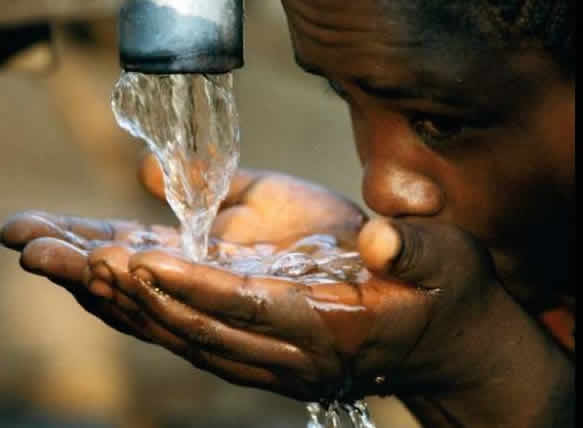
Three in four Ghanaians are at risk of drinking water contaminated with faecal matter, a study by UNICEF Ghana has found.
It said a sample of various sources of water collected across the country, which included improved and unimproved, right through the household level to the point they were handled and consumed, found traces of fecal contamination in them.
It said the contamination was not only in tap water but also in some sachet water, adding that many things could have accounted for the contamination, including how the water was stored, collected and handled.
The UNICEF Ghana Chief of Water, Sanitation and Hygiene (WASH), Ramesh Bhusal, disclosed this in Accra last Wednesday at the second in the series of Media Cafe UNICEF Ghana, organised for journalists focused on WASH.
Media cafe
Mr Bhusal, who was making a presentation on the WASH UNICEF Country Programme 2023-2027, said one in three of water contamination happened from collection, consumption, transportation, storage and use.
Quoting figures of the study, he said 3.5 million people still used unsafe water sources, including surface water, in Ghana.
Describing poor water quality as a major challenge, he said at point of use, three in four households risked drinking contaminated water, while for reliability and sustainability, one in three water points did not function at the time the survey was conducted.
Mr Bhusal disclosed that close to three million households in Ghana, representing 37 per cent of the population, used sachet water on a daily basis as their primary source of drinking water.
He added that at least 27 million of sachet water was consumed daily.
Unfortunately, Mr Bhusal said, 90 per cent of empty sachets, representing 25 million, went into the environment, pointing out that the damage done to the environment was irreparable, and that businesses were doing grievous damage to the environment because the sachets were not collected since the companies were not held accountable.
Sachet water consumption
Explaining the reasons for the high consumption of sachet water, Mr Bhusal said it might be due to the difficulty of households getting tap water connection, and secondly because even if there was tap water, they did not have confidence in it due to the aggressive marketing by sachet water companies, who had succeeded in creating the perception that sachet water was “pure”, thereby pushing interest in drinking tap water away.
“People don’t drink directly from the tap but go and drink sachet water. The marketing has been so aggressive that even educated people and professionals term sachet water as ‘pure water’,” he said.
Mr Bhusal called on the country to invest in WASH programmes, pointing out that they were essential elements for human survival and development, and that it was the reason the United Nations had declared it as human rights in 2010.
Sanitation
Touching on sanitation, Mr Bhusal said less than one in three Ghanaians had their own toilet facility, while 23 per cent used paid public toilet, with another 32 per cent using shared toilet, referring to families using one toilet facility.
“Globally, there is evidence that shared toilet does not bring health benefits because it is not available when you need it because somebody is inside. Any data or any coverage by public toilet or shared toilet facility is not considered as access to sanitation. It is considered as access to limited sanitation,” he explained.
For open defecation, the UNICEF Ghana Chief of WASH said one in six households in the country defecated in the open because they did not have any means of toilet facility, pointing out that surprisingly it included middle class people for whom money might not be a problem.
“They may have money, but they still go and defecate in the open. They may go by motorcycle and defecate and come back. They may also have a smart phone. So, people have motorcycle, but they don’t have their own toilet. So, not having toilet is not about just being poor; it is not a social priority,” he said.
A WASH specialist at UNICEF, Samuel Amoako-Mensah, stressed the need for all to move towards thinking water safety, adding that the problem of water contamination was not about sachet water or tap water being bad.
He called on journalists to assist in helping to address water quality right from source to the point of use, and also for all stakeholders to observe water safety measures.
The Chief of Advocacy and Communication of UNICEF Ghana, Fatma Naib, said the café was an information sharing one that was aimed at providing a unique opportunity for journalists to learn of the work of UNICEF in WASH, and engage with experts from that section who were at the forefront of ensuring that every child in Ghana had access to safe water, proper sanitation and hygiene facilities.
Source: graphic.com.gh











